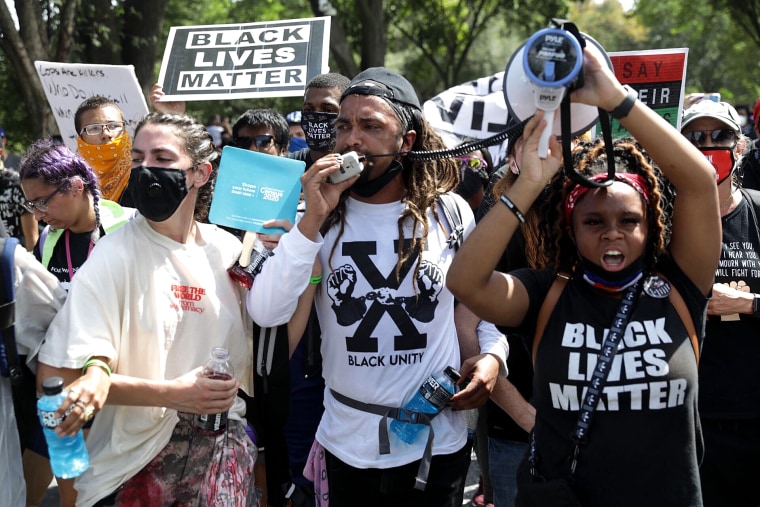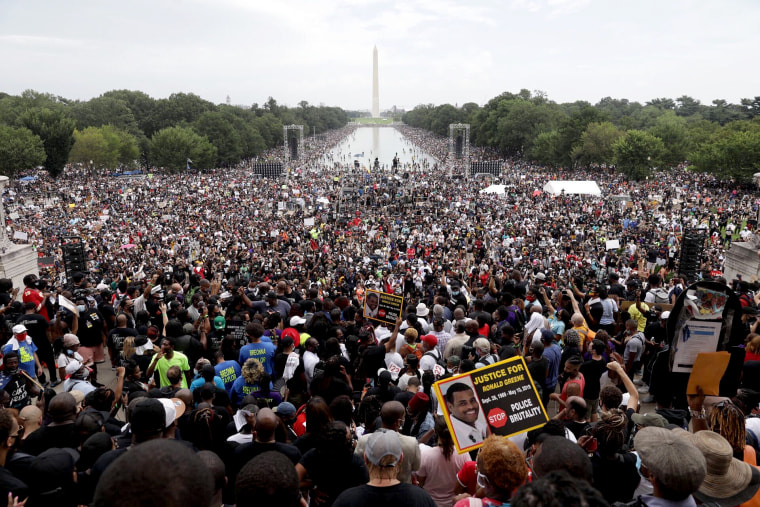Fifty-seven years after the Rev. Dr. Martin Luther King Jr.'s historic “I Have a Dream” speech at the Lincoln Memorial, a new generation of leaders in the racial justice movement spoke at the same spot on Friday and committed themselves anew to pursuing King’s vision.
“Less than a year before he was assassinated, my grandfather predicted this very moment,” Yolanda Renee King, the daughter of King's oldest son, Martin Luther King III, said in leading the speakers’ portion of the day. “We have only just begun to fight.”
The Get Your Knee Off Our Necks march — organized by the Rev. Al Sharpton and his National Action Network — comes at a time of nationwide unrest and ongoing protests over Black people being slain or severely injured by the police. (Sharpton is also a host on MSNBC.)
Speakers at Friday’s march included the father of Jacob Blake, a 29-year-old Black man who was shot seven times by police in Kenosha, Wisconsin, on Sunday and left paralyzed from the waist down.
“I’m tired of looking at cameras and looking and seeing Black and brown people suffer,” Jacob Blake Sr. said. “We’re not taking it anymore. I ask everyone to stand up.”
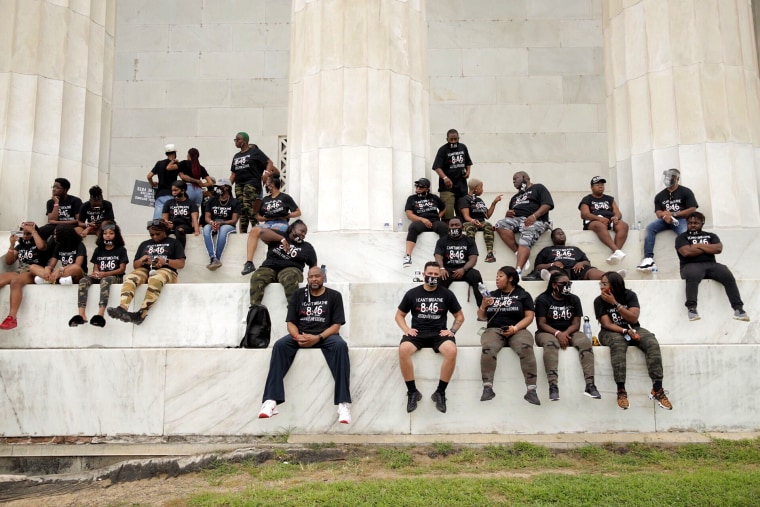
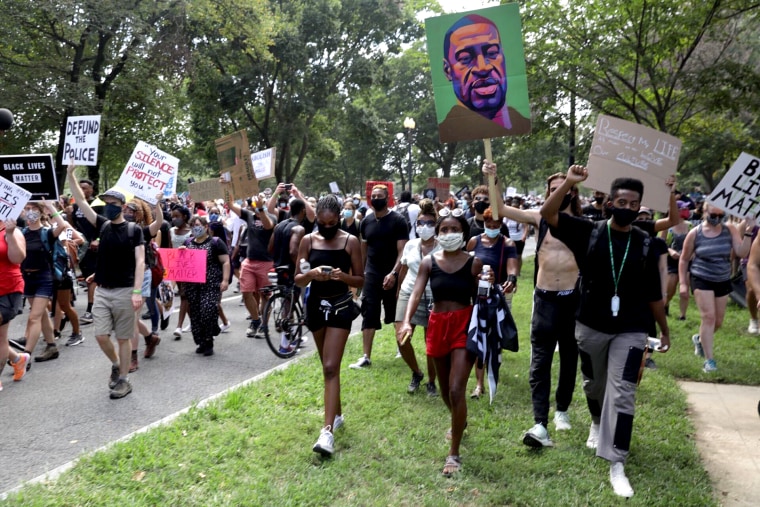
Other speakers included the mother of Breonna Taylor, an EMT who was killed by police in her own home in Louisville in March, and the brother of George Floyd, a 46-year-old Black man who died after pleading for help as a white police officer kneed him in the neck in May.
Tamika Palmer, Taylor’s mother, urged people at the march to "stand together" and vote in November.
As the crowd chanted Breonna Taylor’s name, Palmer was at a loss for words after thanking the people who have fought for justice for her daughter. (No charges have been brought against the officers involved in the raid that killed Taylor.)
“I wish George were here to see this right now,” Philonise Floyd, George’s brother, said. “That’s who I’m marching for. I’m marching for George, for Brianna, for Ahmaud, for Jacob, for Pamela Turner, for Michael Brown, Trayvon and anybody else who lost their lives.”
Floyd added that today it has “never been more clear” that change is needed.
“Everyone here has made a commitment, because they wouldn’t be here for no other reason right now,” he said.
Sharpton first proposed the march on June 4 while delivering the eulogy for George Floyd. The decision to announce the march, after briefly discussing it with Martin Luther King III, was spur of the moment, Sharpton said.

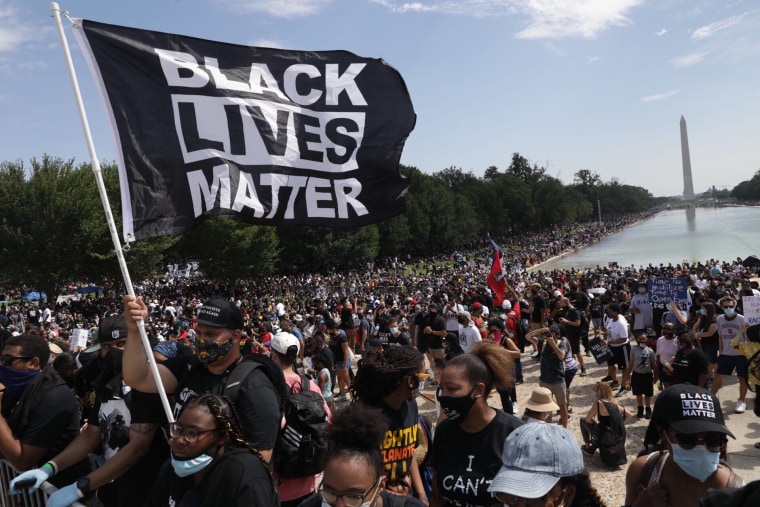
During his speech, Sharpton explained that one of the reasons for the march was to demand police accountability through federal legislation.
“Demonstration without legislation will not lead to change,” he said. Among his demands was that the GOP-majority Senate pass the George Floyd Justice in Policing Act — a bill that aims to combat police brutality, use of excessive force, and racial bias in policing.
Sharpton later criticized President Donald Trump for failing to acknowledge Jacob Blake, as well as others like Taylor who were killed by police.
“How do you speak when this young man Jacob sits in a hospital and you won’t call his name?” Sharpton said to the crowd, which National Action Network organizers tallied of upward of 50,000.
After the speeches, protesters marched — socially distanced — for about a half mile from the Lincoln Memorial to the Martin Luther King Jr. Memorial.
At the end of his speech, Sharpton told the crowd that it was time to have a conversation with America.
“We need to have a conversation about your racism, about your bigotry, about your hate, about how you would put your knee on our necks while we cry for our lives,” Sharpton said.
“We didn’t come here to start trouble. We came to stop trouble.”
